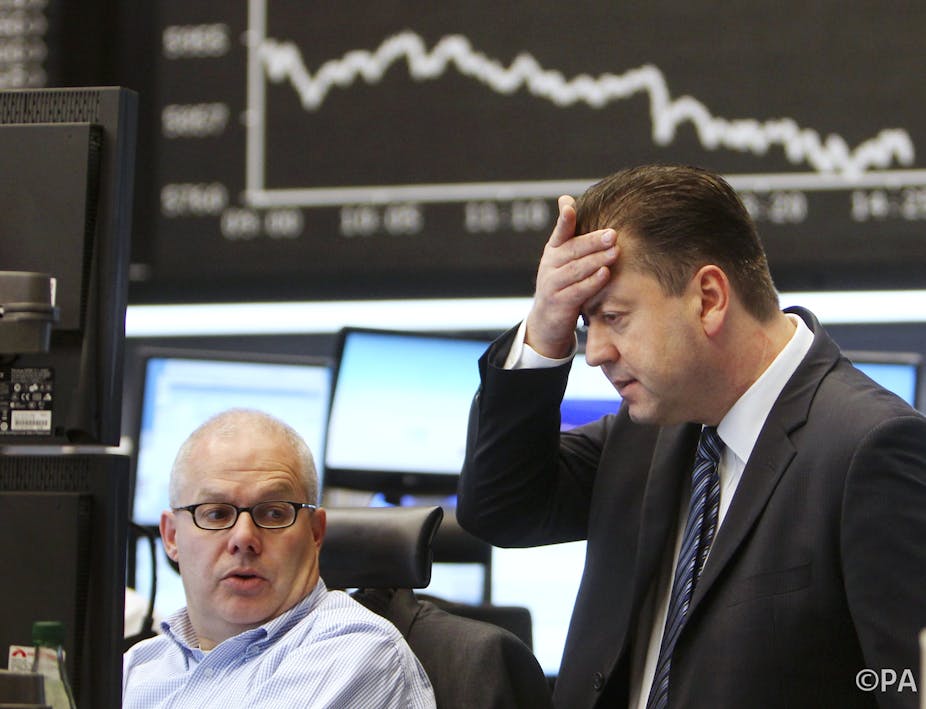In the five years since the collapse of Lehman Brothers, the discipline of economics has had an uncomfortable spotlight turned on its inner workings and assumptions. Movements such as Occupy have passionately argued that there is something fundamentally wrong with the way our economies are structured. On top of the financial crisis the world is now facing rising inequality and pressing sustainability issues; is it any wonder that people assume economics must have got it all wrong?
Recently the focus of the debate has turned to the undergraduate economics curriculum, widely known to be one of the most standardised in higher education today. For those who believe that economists are to blame for the current woeful state of affairs, it makes sense to look here to find the root of the problem. And, while criticism increases from outside of academia, it is heartening to see that students themselves are just as vocal in questioning the education they are receiving.
The call for radical changes to economics teaching has been equally strong from within the discipline itself. The Institute for New Economic Thinking (INET), for instance, recently announced a new project with the goal of creating a more applicable and realistic curriculum.
Another association of academic economists, the Post Keynesian Economics Study Group, argue that economics students have simply been learning the wrong theories all along. They emphasise the need to return to the works of past masters such as Keynes and Marx, and to reassess our models of economic systems.
It would be easy to look at the public debate over the past five years and assume that it was settled; that economics and economists were to blame for the financial crisis, and that the only way to prevent a future crisis would be a complete overhaul of the way economics is taught. However there are really two separate debates being conflated here. First is the question of whether current economic theories and practices contributed to the financial crisis, while the second is how the economics curriculum should respond to new challenges and theories, and remain relevant to today’s students.
The first of these questions is certainly not an easy one to answer, and I will not attempt to do so here. With many years of economic study behind me, I can honestly say I understand the inner workings of financial markets as much as the next person – that is to say, not much. It seems odd to argue that economists who, like me, were never educated on the intricacies of derivatives, futures and other financial “products”, are responsible for their existence, or the way they were used (and misused) in the lead up to the crisis.
Whether or not we can blame economics for the crash, there are still very persuasive reasons why we might want to reform the undergraduate curriculum, to address new issues such as sustainability and inequality and to keep students engaged. INET’s recently launched CORE project (Curriculum in Open-source Resources in Economics) argues that the economics curriculum needs to focus less on theory, and more on the applied side of the discipline – that is, research based on data analysis.
They rightly point out that most research in economics today is applied, not theoretical, so it would make sense for economics students to be exposed to this aspect of the discipline early on. They further argue that a greater empirical focus would allow students to engage with evidence from economic history, studying events like the Great Depression of the 1930s in the hope of learning something about the present.
CORE problem
Introducing more applied, “real world” economics into the curriculum might seem like an obvious improvement, but applied economics brings with it its own set of issues. The current emphasis on theoretical models is often criticised for relying so heavily on mathematical techniques. However, applied economics relies just as strongly on quantitative methods. In fact, this approach has become so sophisticated it now forms its own sub-discipline known as “econometrics”, which requires years of study to master in its own right.
In placing a greater emphasis on applied economics, without a corresponding increase in quantitative training, my fear is that we risk presenting students with results they do not have the tools to question. Everyone knows the saying about lies and statistics.
In today’s curriculum, students are taught simplified economic models based on assumptions they are explicitly warned may not be realistic. This kind of economics makes no claims to absolute “truth”, or even predictive power, which might seem a little useless – but remember, economics was once explicitly called “political philosophy”.
In a curriculum based on applied research however, truth (in the form of statistical significance) is just a p-value away. In moving away from simplified models towards applied research, we risk giving economics students a false sense of confidence in data.
University curricula should constantly adapt to both the changing world and changing nature of their disciplines. However the argument that the standard economics education must undergo a radical reform because of its (perceived) link with the financial crisis is somewhat misguided.
Any reforms must be carefully considered, as they will always bring their own assumptions and biases. Applied economics research has its place in the curriculum, and in future will most likely become more prominent. But it is unrealistic to suggest that this will finally make economics into the reliable, predictive science that many would like to see it become.

